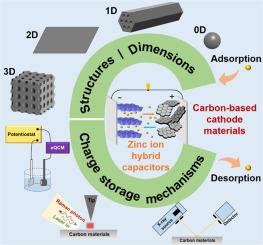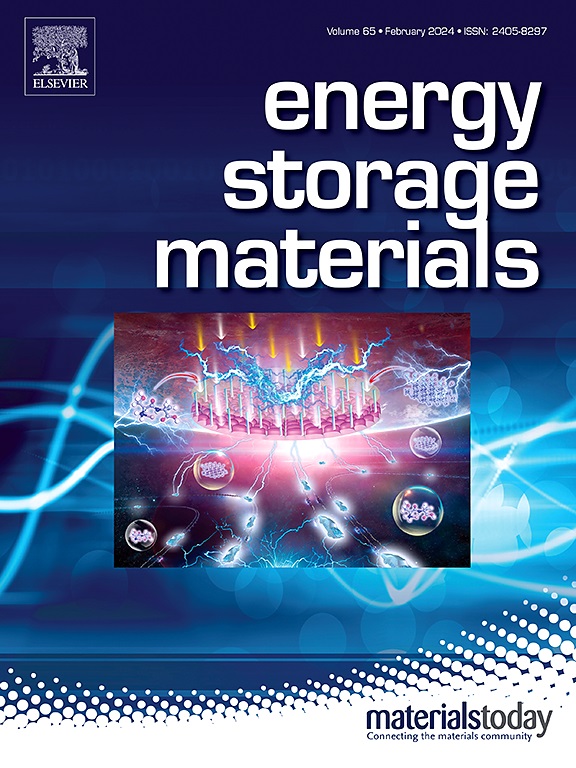Advanced carbon materials for efficient zinc ion storage: Structures, mechanisms and prospects
IF 18.9
1区 材料科学
Q1 CHEMISTRY, PHYSICAL
引用次数: 0
Abstract
Zinc ion hybrid capacitors (ZIHCs), combining the high energy density of zinc ion batteries with the high-power output of supercapacitors, are poised to become significant players in the field of electrochemical energy storage. Carbon-based materials have emerged as competitive candidates for ZIHC cathodes owing to their cost-efficiency, exceptional electronic conductivity, chemical stability, modifiable surface states, and adjustable pore structures. Recent research has been intensely focused on enhancing the energy density and cycling stability of ZIHCs through rational modification and structural optimization of carbon-based materials. This review delves into the structural design, electrochemical performance and charge storage mechanism of carbon-based cathode materials for ZIHCs via spanning a diverse range of dimensions, and the internal relations among them are explained. The challenges and opportunities facing ZIHCs are highlighted, aiming to steer the innovative development of carbon-based cathode materials and the creation of novel ZIHC technologies.

求助全文
约1分钟内获得全文
求助全文
来源期刊

Energy Storage Materials
Materials Science-General Materials Science
CiteScore
33.00
自引率
5.90%
发文量
652
审稿时长
27 days
期刊介绍:
Energy Storage Materials is a global interdisciplinary journal dedicated to sharing scientific and technological advancements in materials and devices for advanced energy storage and related energy conversion, such as in metal-O2 batteries. The journal features comprehensive research articles, including full papers and short communications, as well as authoritative feature articles and reviews by leading experts in the field.
Energy Storage Materials covers a wide range of topics, including the synthesis, fabrication, structure, properties, performance, and technological applications of energy storage materials. Additionally, the journal explores strategies, policies, and developments in the field of energy storage materials and devices for sustainable energy.
Published papers are selected based on their scientific and technological significance, their ability to provide valuable new knowledge, and their relevance to the international research community.
 求助内容:
求助内容: 应助结果提醒方式:
应助结果提醒方式:


